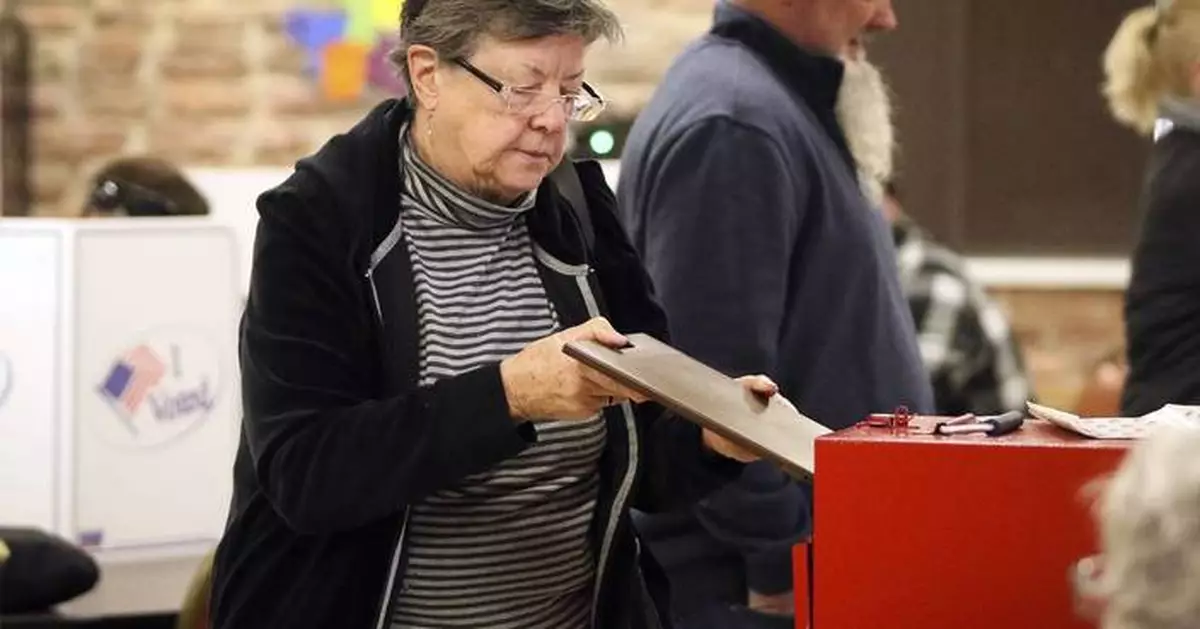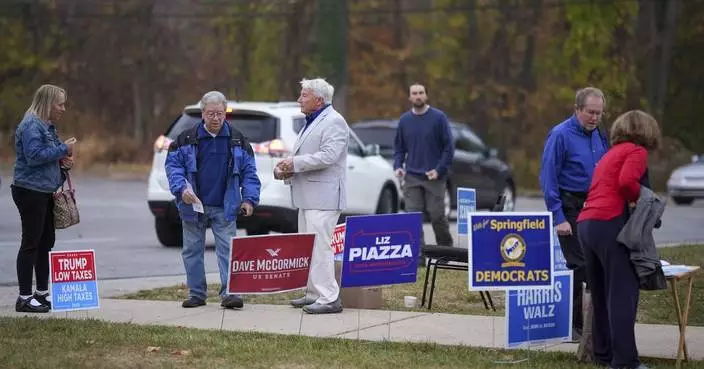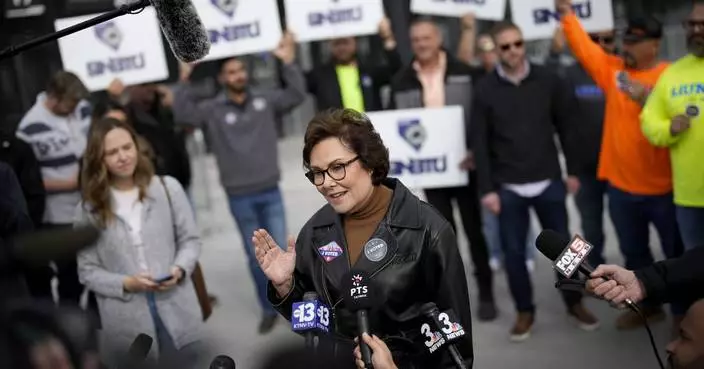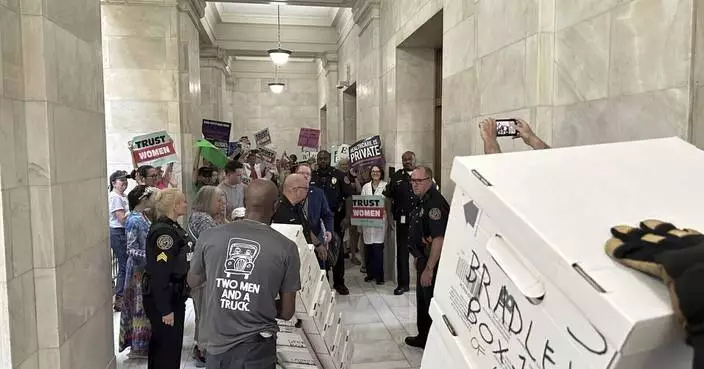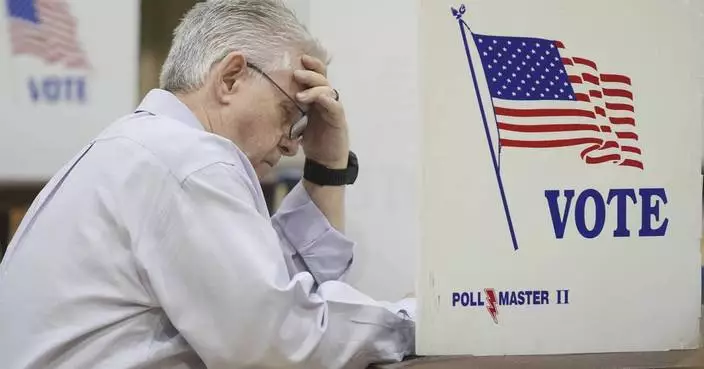WASHINGTON (AP) — The Associated Press declared winners Tuesday in some states where polls had just closed, and in some cases before any votes had been released.
How is that possible?
While hotly contested races that take hours or days to count may attract the most attention, the AP for decades has called landslide or uncontested races at poll closing time.
That's what happened Tuesday, when AP declared former President Donald Trump the winner in Montana and Utah as polls closed in those states at 10 p.m. ET. The AP also declared winners as poll closed in earlier states, as well as in some races for U.S. Senate and governor.
The AP considers multiple factors and analyzes available data before determining whether a winner can be declared when polls close in a given state. But the AP will never declare the outcome in a competitive contest before enough votes are counted to make the winner clear.
Many of the races called just as the polls close are uncontested elections where only one candidate appears on the ballot and is therefore the only possible winner of the race. Voters in some parts of the country live in multimember districts for offices such as state legislature, where more than one candidate is elected in a district. In those districts, an uncontested race is one where the number of candidates on the ballot is equal to or less than the number of seats available in that district.
In the 2024 general election, the AP is declaring winners in nearly 2,000 uncontested races, compared with about 4,500 contested races.
Sometimes it’s possible to declare winners at poll closing time in noncompetitive races with multiple candidates in areas where one political party has an established history of lopsided victories.
In these cases, the AP analyzes multiple sources of available data to confirm the outcome. That includes the results of AP VoteCast, a comprehensive survey of both voters and nonvoters that determines who voted, how they voted and why.
The AP will not call a race when polls close if AP VoteCast’s results indicate a deviation from the state’s long-standing political trends and voting history.
AP VoteCast results will be available for all 50 states, though only a relatively small number of the least competitive races will be considered as potential poll-close calls. There is no AP VoteCast survey in the District of Columbia; therefore, none of the contests there will be called when polls close even though the nation’s capital has a long history of overwhelming victories for Democratic candidates.
For example, the AP’s poll-close calls in the 2020 presidential election included Wyoming, a state that last voted for a Democrat in 1968 and that Donald Trump won over Joe Biden by 44 points; and Massachusetts, which last voted for a Republican in 1984 and that Biden won by 34 points over Trump.
A handful of states and districts have multiple poll closing times because they are in more than one time zone. In these cases, the AP will never declare a winner before the final poll closing time in that state or district. Florida, Texas and some others begin to release vote results from most of the state shortly after polls close in the earlier time zone. Votes that are already counted from areas in the earlier time zones will also be considered in determining whether a winner can be declared at the moment when the last polls close.
Other election data the AP takes into account include an area’s voting history from recent elections, voter registration statistics and pre-Election Day polling.
When the above data points confirm the expected result in a state where either major party has a history of dominating elections, the AP may call the race as soon as voting ends.
Learn more about how and why the AP declares winners in U.S. elections at Explaining Election 2024, a series from The Associated Press aimed at helping make sense of the American democracy. The AP receives support from several private foundations to enhance its explanatory coverage of elections and democracy. See more about AP’s democracy initiative here. The AP is solely responsible for all content.
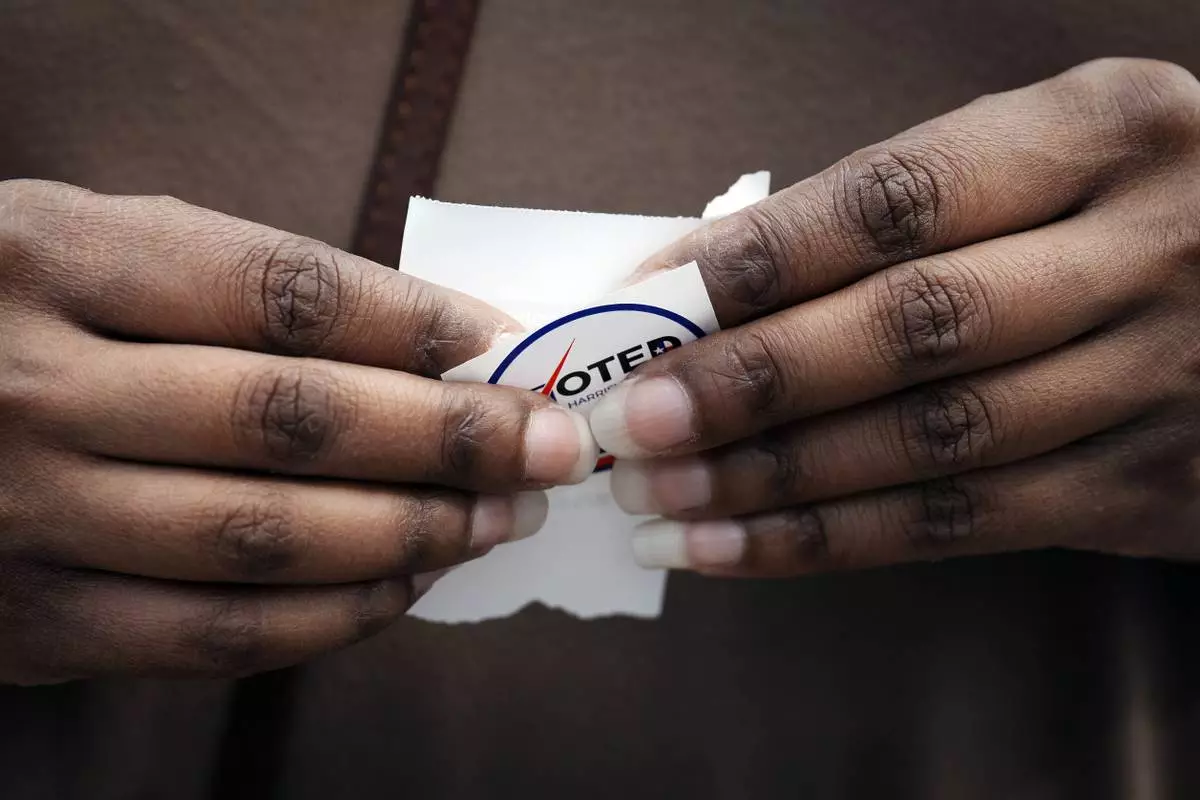
A voter holds a "I Voted" sticker after casting their vote for General Election on Election Day Tuesday, Nov. 5, 2024 at Sunnyside Health and Multi-Service Center in Houston. (Yi-Chin Lee/Houston Chronicle via AP)
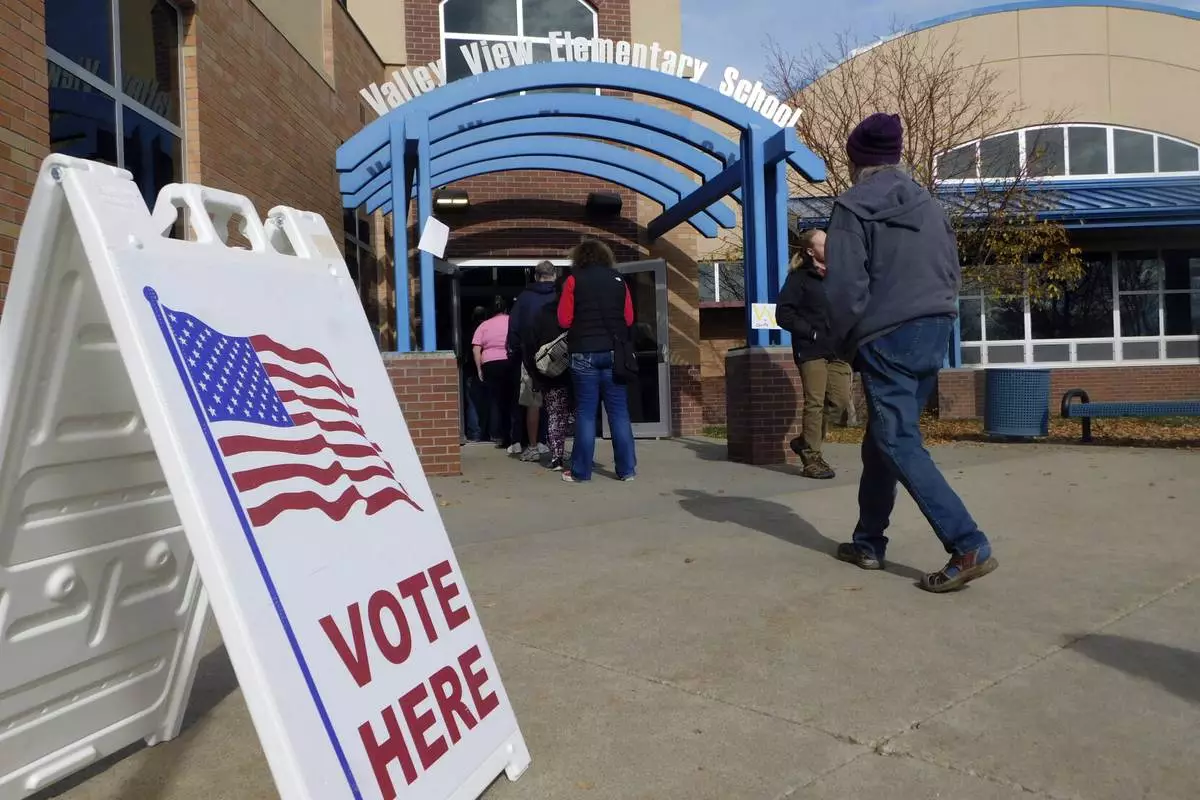
Pennigton County voters head to the polls at Valley View Elementary School Gym on Election Day, Tuesday, Nov. 5, 2024, in Rapid City, S.D. (Madison Willis/Rapid City Journal via AP)
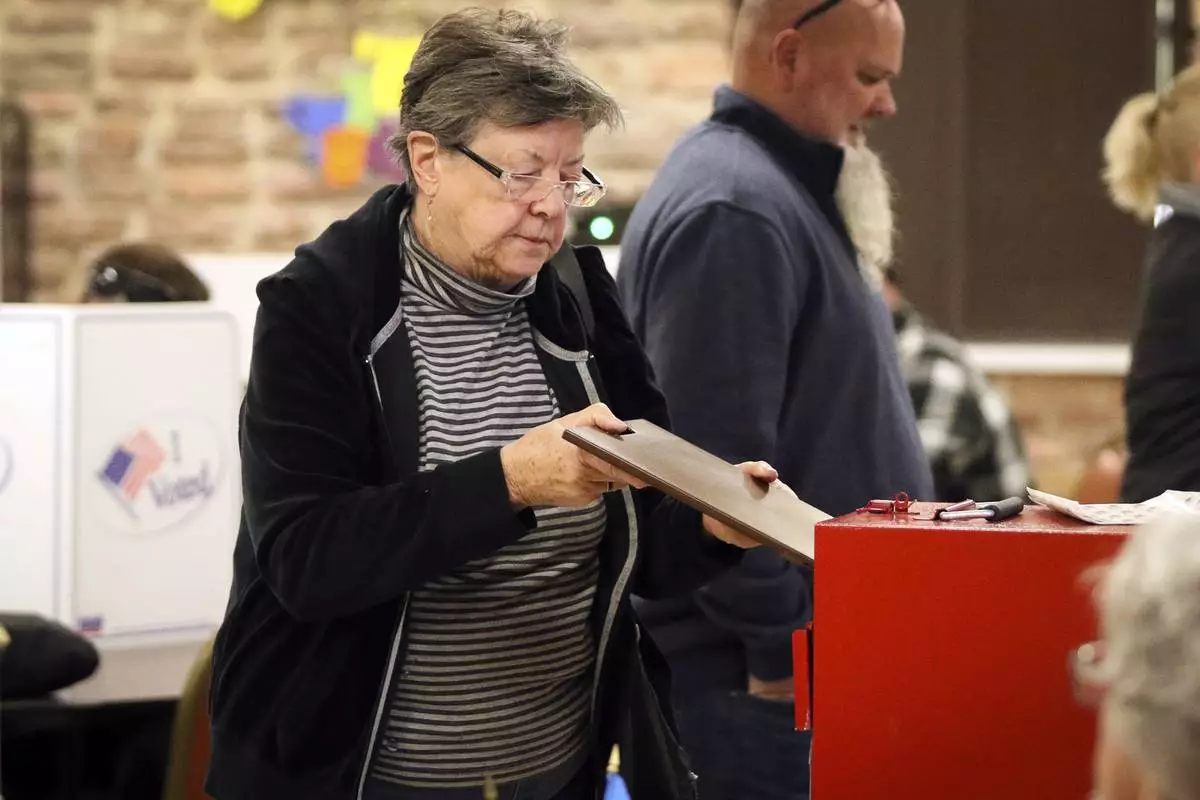
A woman casts her ballot at Canyon Lake Activity Center on Election Day, Tuesday, Nov. 5, 2024, in Rapid City, S.D. (Darsha Dodge/Rapid City Journal via AP)
ANNAPOLIS, Md. (AP) — Angela Alsobrooks won a U.S. Senate seat on Tuesday to become the first Black candidate to be elected senator in Maryland, as the Democrat prevailed in a blue state against popular Republican former Gov. Larry Hogan.
The race has been widely watched with control of the Senate potentially at stake.
Alsobrooks campaigned heavily on abortion rights in a year that Maryland voters approved a ballot measure to enshrine abortion rights in the state constitution. She said she heard on the campaign trail how much abortion rights matter to voters.
“I hear it not just from women, but I’ve heard from a number of men who say that they want the freedom for their daughters and their granddaughters, and that they’re very concerned about the direction we’re heading for people to make reproductive choices,” Alsobrooks said in a September interview with The Associated Press.
In his campaign, Hogan said he would support abortion rights, but Alsobrooks argued he could not be trusted to do so. She cited his veto of legislation to expand access to abortion in Maryland while he was governor and then withheld money for abortion training after the legislature overrode his veto.
Alsobrooks deftly used television ads to emphasize that the race could determine Senate control, putting Maryland in the unusual position of a potential swing state in a year of high political stakes.
Voters for Alsobrooks frequently mentioned the significance of fending off a challenge by the popular Republican in order to keep the seat blue with the control of the Senate potentially at stake.
“I don’t want to see the Senate go Republican,” said Donald Huber, a 72-year-old Democrat voting in Annapolis on Tuesday. “Simple as that. I don’t want to see it turn.”
Alsobrooks supporters noted she would bring greater diversity to the Senate, and they said she is better positioned to address problems facing the state and the nation.
“Angela is really down-to-earth, and she has real solutions, real answers, to the real problems, and I feel Hogan does not have that,” said Zack Buster, a 22-year-old Democrat from Glen Burnie, who voted for Alsobrooks during the early voting period.
Hogan supporters said they liked the job the former governor did while in office.
“I thought he did a really good job as governor, and I like the idea that I think he’ll be independent and try to work both sides, whereas I think the lady, Alsobrooks, I think she would have just been a rubber stamp for the Democrats,” said Dale Schulz, a 79-year-old Annapolis resident, after voting Tuesday in Annapolis.
Hogan, who has been one of former President Donald Trump’s fiercest Republican critics, campaigned on providing an independent voice in Washington. But Alsobrooks challenged that constantly in her ads, which included video clips of the former governor saying he opposed abortion and praising the Supreme Court justices who enabled Roe v. Wade to be struck down in 2022.
Alsobrooks overcame criticism from Hogan after it was reported by CNN in September that she improperly claimed property tax credits for two homes, something her campaign said she was unaware of and has started to repay with interest.
While a Republican has not won a Senate race in Maryland in more than 40 years, Hogan was the most formidable candidate fielded by the GOP in the state in years. The two-term former governor had won over enough Democratic voters to win two statewide races in 2014 and 2018 in a state where Democrats outnumber Republicans 2-1.
Still, Hogan had a difficult needle to thread. This election was the first time Hogan ran on the same ballot as Trump, who is deeply unpopular in Maryland. Hogan’s criticism of Trump, while helping to win some Democrats whose support he had to have to win statewide, turned off some Republican voters.
Alsobrooks also campaigned on gun control. Vice President Kamala Harris, a friend of Alsobrooks, made a campaign stop in Maryland for her, where they both spoke about the significance of taking action against gun violence.
Since 2018, Alsobrooks, 53, has served as the county executive of Prince George’s County, Maryland’s second most populous jurisdiction in the suburbs of the nation’s capital. Before that, she served as the county’s top prosecutor.
“We created more businesses,” she said in the AP interview about her local government experience. “I’ll be doing that for the whole state and transferring the skills that I have developed not just as executive, but as chief law enforcement officer as the prosecutor in Prince George’s County.”
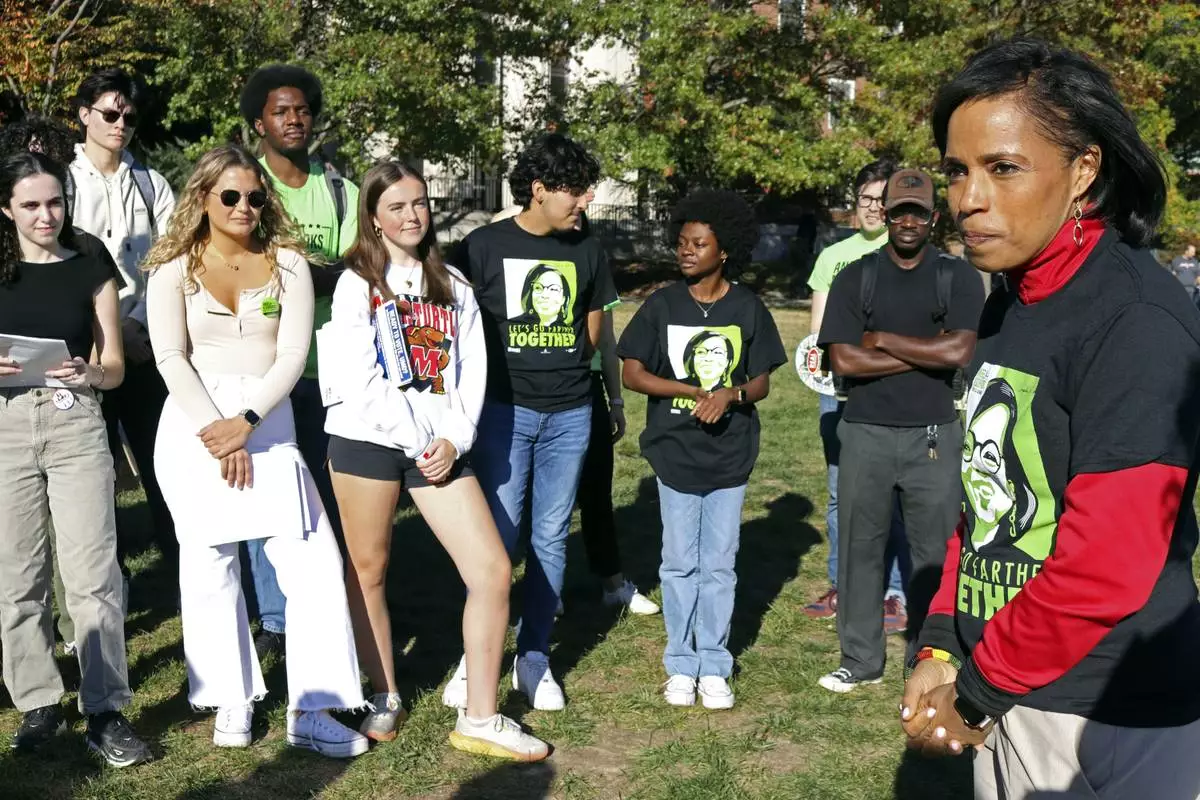
Democrat Angela Alsobrooks, right, the county executive of Maryland's Prince George's County who is running for U.S. Senate, talks to students at the University of Maryland in College Park, Md., during a campaign stop, Thursday, Oct. 24, 2024. (AP Photo/Brian Witte)
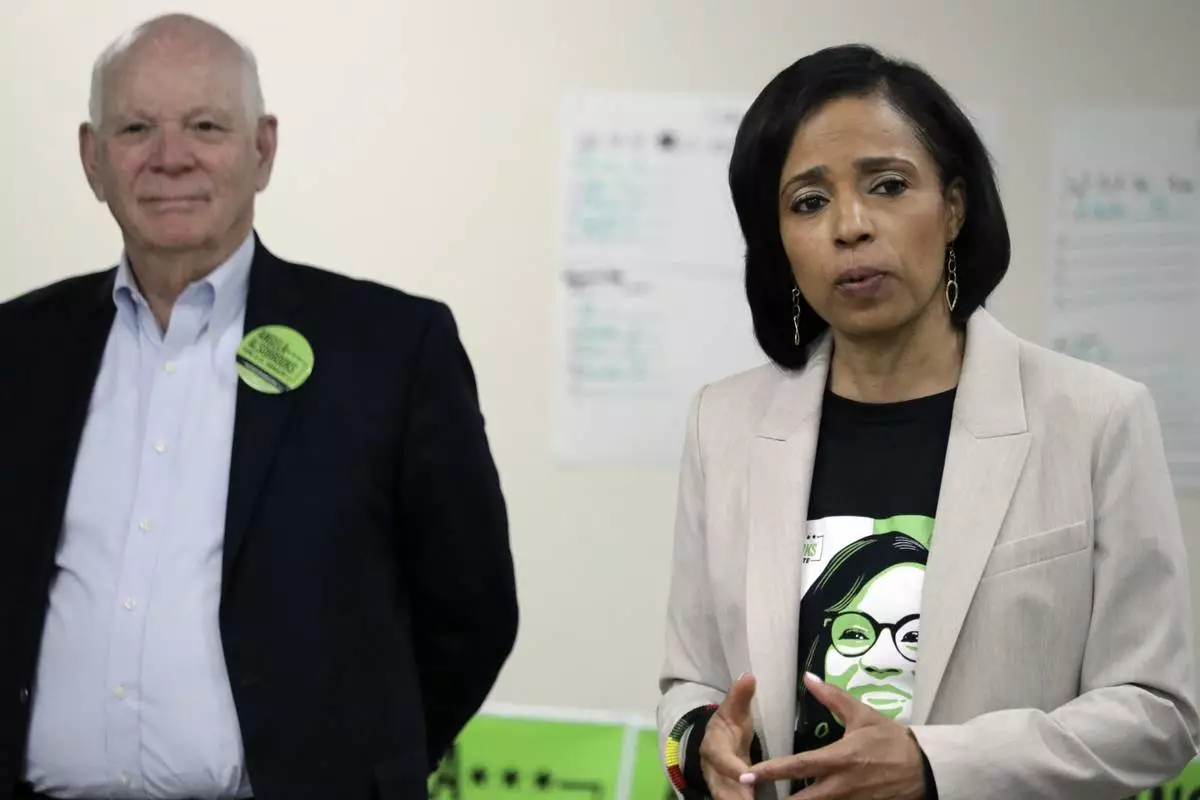
Prince George's County Executive Angela Alsobrooks, right, who is running for the U.S. Senate seat in Maryland that is opening with the retirement of Sen. Ben Cardin, left, talks to supporters during a campaign stop in Upper Marlboro, Md., on Thursday, Oct. 24, 2024. (AP Photo/Brian Witte)
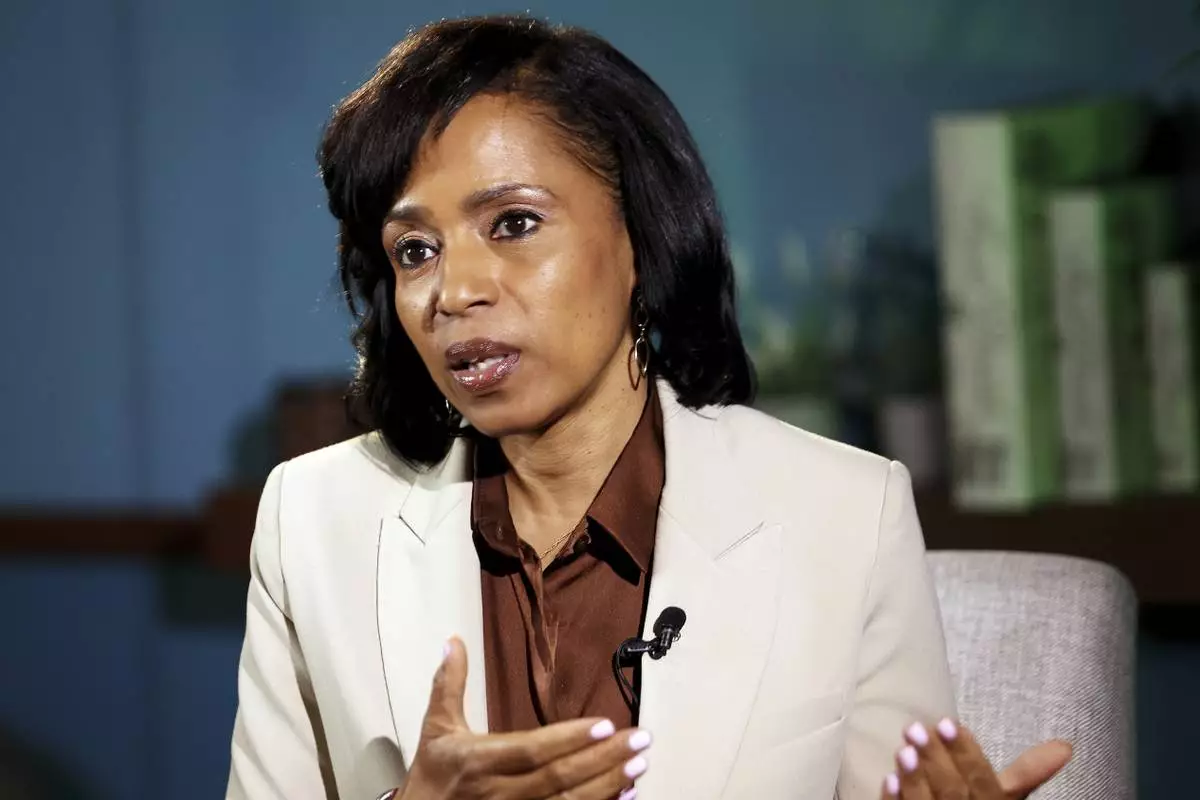
FILE - Prince George's County Executive Angela Alsobrooks, Demoractic candidate for Maryland's Senate seat, speaks during an interview in Gaithersburg, Md., Sept. 20, 2024. (AP Photo/Daniel Kucin Jr., File)
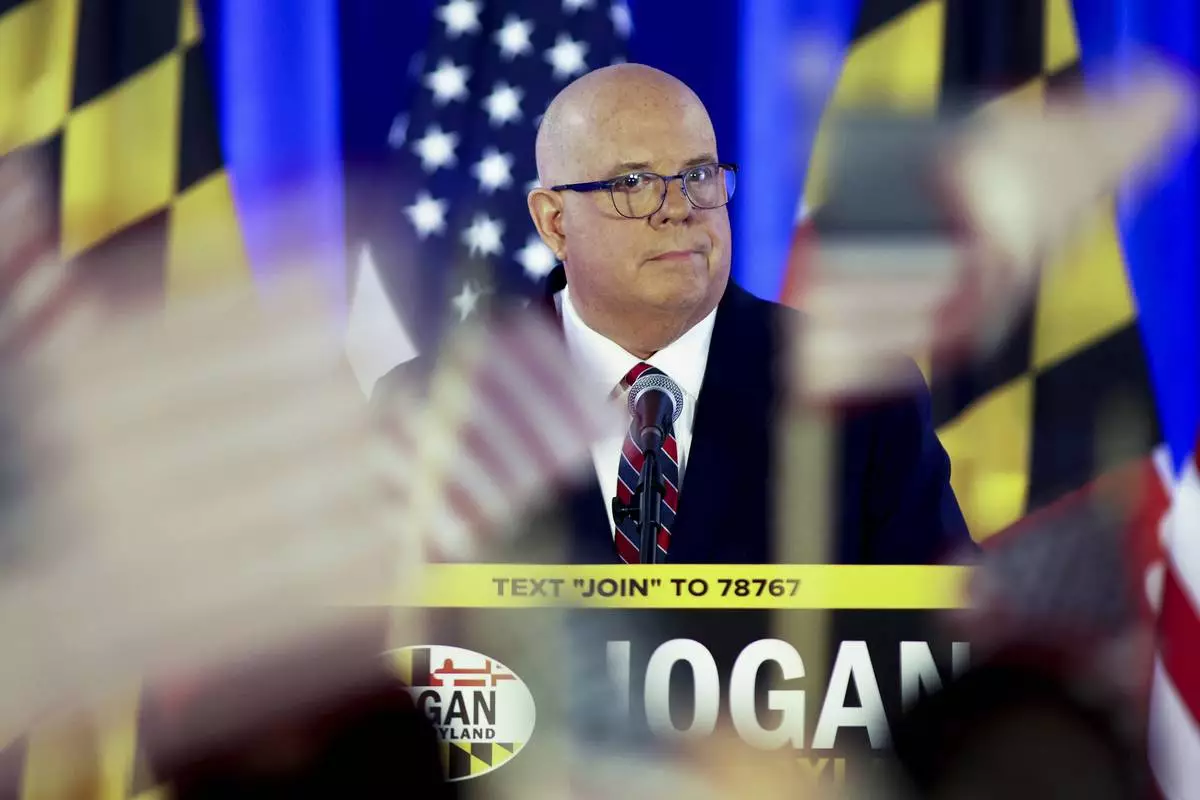
FILE - Former Maryland Gov. Larry Hogan speaks during the Hogan for Maryland Primary Night Victory Party, May 14, 2024, in Annapolis, Md. (AP Photo/Daniel Kucin Jr., File)
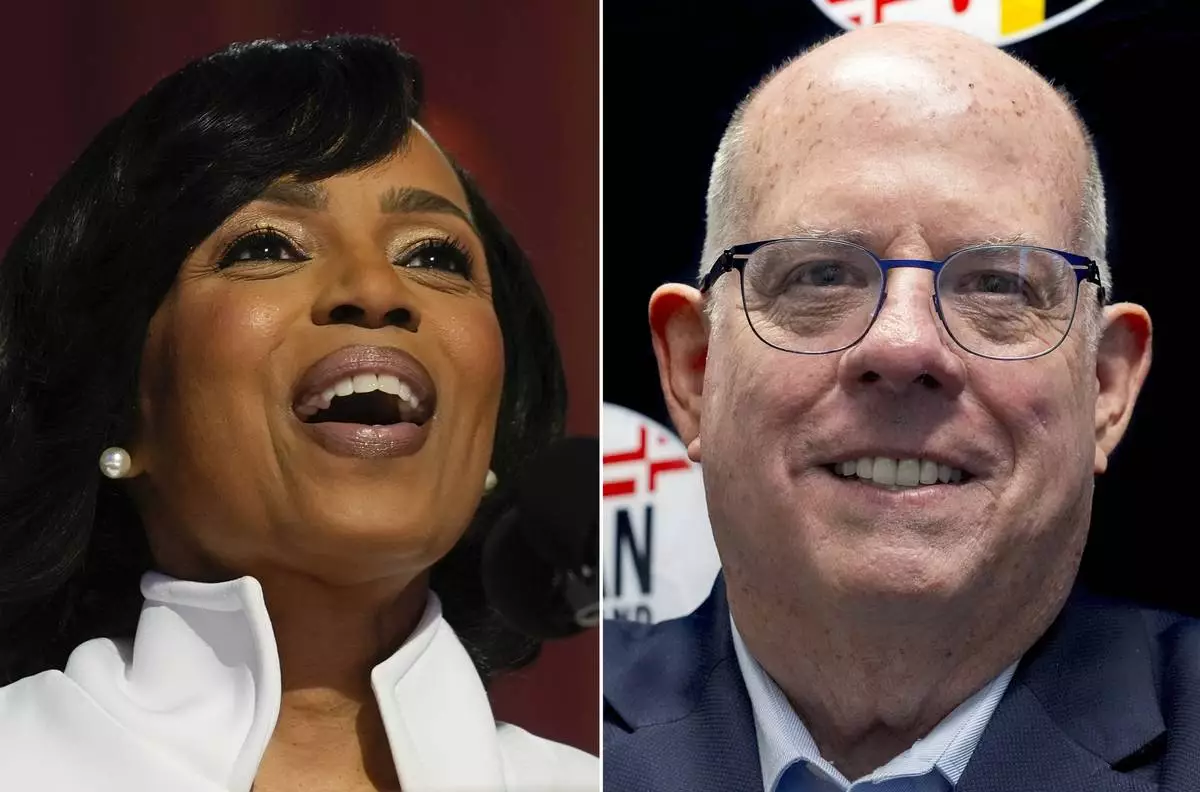
FILE - This combination of images shows from left, Democratic Maryland Senate candidate Angela Alsobrooks in Chicago, Aug. 20, 2024, and Republican opponent, former Maryland Gov. Larry Hogan in Annapolis, on Aug. 27, 2024. (AP Photo Erin Hooley, left; and AP Photo Stephanie Scarbrough, File)





